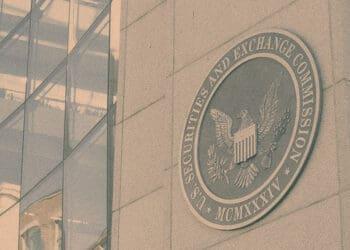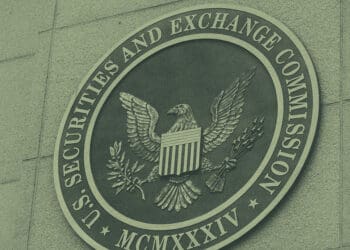In September 2021, El Salvador became the first country to adopt bitcoin as legal tender. It will likely not be the last to do so. This article explores some of the risks facing companies doing business in or with entities from El Salvador and other nations that may follow suit and offers tips on how to avoid financial, legal, regulatory, law-enforcement and other pitfalls.
On Sept. 7, 2021, El Salvador officially adopted bitcoin — the most widespread and best-known cryptocurrency — as legal tender and all but replaced the country’s other official currency, the colón. No longer in circulation, the colón is tied to the U.S. dollar (which remains in place as El Salvador’s other primary medium of exchange). Businesses in El Salvador are now required to accept bitcoin, and there will be increased pressure on foreign companies doing business in the country to likewise accept the virtual currency for transactions.
For his part, President Nayib Bukele sees the adoption of bitcoin as an opportunity for many poorer El Salvadorans to join the formal economy of a country in which 70 percent of residents do not have bank accounts. He also claims that bitcoin will make it easier and cheaper for people to receive remittances from abroad, another issue of importance in a country for which such remittances represented nearly one-fifth of the nation’s GDP in 2020.
Phone. https://t.co/sIhXq6v2OD
— Nayib Bukele (@nayibbukele) December 5, 2021
Critics see El Salvador as having placed itself in an economic Petri dish. They express concerns about bitcoin’s volatility, its use as a tool to support money-laundering and other criminal activities and potential exposure to cybersecurity threats and ransomware attacks. Internal detractors of the new law include El Salvador’s Chamber of Commerce and Industry, which asked its members not to use bitcoin because of its volatility. Outside of the country, a spokesman for the International Monetary Fund, Gerry Rice, said in a June 2021 statement, “Adoption of bitcoin as legal tender raises a number of macroeconomic, financial and legal issues that require very careful analysis.”
Outside of El Salvador, attitudes of national governments toward the use of bitcoin are mixed. For example, in the United States, businesses are allowed to accept payment in bitcoin and cryptocurrencies are traded on derivatives markets. The U.S. Department of the Treasury and the Internal Revenue Service, respectively, categorize bitcoin as funds, currency or a monetary instrument in connection with the requirements imposed on money services business and as property for taxation purposes. The Securities and Exchange Commission (SEC) has taken the lead role in policing the cryptocurrency market, but some of its positions have been controversial and, according to many critics, unclear.

Other countries have taken a stricter approach to cryptocurrencies. Since Jan. 1, 2021, Russia has allowed the holding of cryptocurrencies, or “digital financial assets,” and views them as analogues of issued securities. However, residents of Russia are not allowed to receive cryptocurrencies as payment for goods, services or work.
That policy may change soon, however, as Russia began testing CryptoRuble in mid-2021. Unlike other cryptocurrencies, the CryptoRuble will not be mined; instead, it will be issued by the Russian central bank, serve as legal tender and be exchangeable for traditional rubles. Other governments have taken an even more cautious approach. In China, bitcoin is essentially banned; cryptocurrency exchanges are prohibited, and banks, payment processors and other financial institutions are not allowed to conduct transactions or deal in bitcoin.
U.S. companies with interests, operations or business relationships in El Salvador must now make a difficult decision: Forego potential profits from commercial activity in the country or ramp up their due diligence, documentation and corporate compliance and training efforts to minimize the risks of transacting in bitcoin.
There is no one-size-fits-all answer to this dilemma. Corporate leadership must assess stakeholders’ aversion to potential losses versus their willingness to adopt — or at least accommodate — new technology and processes. These choices are further complicated by a regulatory environment, in the United States and abroad, that is as uncertain as the cryptocurrency it oversees.
SEC Denies ‘Regulation by Enforcement,’ But Bitcoin Actions Are Rising
In statements made Nov. 8, 2021, SEC enforcement director Gurbir Grewal countered critics who claim that, with respect to cryptocurrency, the agency is “regulating by enforcement” rather than creating a regulatory framework supported by clear rulemaking and public statements. He asserted that the agency’s actions have been guided by “long-standing, well-known and understood regulations and standards that govern the securities industry.”
Grewal’s statements were closely aligned with comments made earlier in the year by SEC Chair Gary Gensler, who characterized the cryptocurrency market as operating “like the Wild West.” Gensler said, “We have taken and will continue to take our authorities as far as they go” and noted that the SEC’s enforcement division had brought 75 lawsuits involving digital assets in the past 10 years. According to Cornerstone Research, 50 of those actions occurred in 2019 and 2020, demonstrating a marked upward trend in enforcement activity.
Like Grewal, Gensler has strongly denied that there is lack of regulatory clarity when it comes to cryptocurrency. However, in July 2021, two SEC commissioners, Hester Pierce and Elad Roisman, expressed their opinion that the SEC had offered a “decided lack of clarity” about the role of securities laws in regulating digital assets and called for the agency to provide a bright line as to the definition of cryptocurrencies and whether they qualify as securities.
While SEC enforcement actions have been primarily targeted at investments in bitcoin, as opposed to financial transactions in which bitcoin was the currency of choice, businesses should work with experienced legal counsel to ensure that such transactions are clearly documented as a form of payment and not an exchange of securities or an investment contract (which Gensler, based on the U.S. Supreme Court’s decision in SEC v. Howey Co., sees as falling under Congress’ definition of a security).
Know Your Customer
When it comes to cryptocurrency transactions, proper due diligence isn’t just required — it’s the bare minimum. Businesses that choose to do business with El Salvadoran entities should adopt “know your customer” (KYC) rules like those used to comply with anti-money laundering laws, the Bank Secrecy Act and standards established by the Financial Industry Regulatory Authority (FINRA).
As an example, FINRA Rule 2090 states:
“Every member shall use reasonable diligence, in regard to the opening and maintenance of every account, to know (and retain) the essential facts concerning every customer and concerning the authority of each person acting on behalf of such customer.”
From a broker’s perspective, such “essential facts” include a customer’s age, investment experience, time horizon, liquidity needs and other pieces of information that, along with information about current holdings, tax status, financial situation and investment objectives, can help ensure that investment recommendations are suitable for that person.
When deciding whether to transact in bitcoin, a similar KYC list of information should be gathered. Businesses should ensure they have complete, accurate data on the counterparty in their transaction, including the names, backgrounds and contact information of key corporate officers, as well as publicly available regulatory and financial information on the company and the products and services for which bitcoin is being used for payment.
This KYC data gathering also applies to any third parties that may act as an agent for or that accept or make payments in bitcoin on behalf of the company. Such third-party vendors often will charge a fee for services, which may also include managing risk, compliance and internal control issues. That said, the company engaging such services may still be viewed by government authorities and stakeholders as bearing ultimate responsibility for these matters.
Businesses should also ensure that they are complying with all requirements of the Office of Foreign Assets Control (OFAC). OFAC regularly publishes searchable lists of individuals and companies owned or controlled by or acting for or on behalf of countries targeted by the United States for economic and trade sanctions. It also lists individuals, groups and entities, such as terrorists and narcotics traffickers, that fall outside of designated, country-specific programs. Moreover, in addition to business or parties, OFAC also maintains a list of cyber-related designations, which includes hash values associated with cryptocurrency. U.S. companies should never engage in business with individuals, parties or transactions involving cryptocurrency whose hash value is on OFAC’s sanctions lists.
Similarly, U.S. businesses should adhere to all anti-money laundering and anti-bribery statutes that apply at home and abroad (e.g., the U.S. Foreign Corrupt Practices Act and the UK Bribery Act).
Identify Jurisdictional and Dispute-Resolution Issues
Disputes are not a necessary part of doing business, but they are often unavoidable. Before engaging in any foreign transaction U.S. businesses should identify and document the governing law that applies to potential disputes and determine the jurisdiction or arbitration forum in which they will be litigated or otherwise resolved.
When it comes to judicial systems and cryptocurrency, not all are created equal. Certain courts and arbitration forums may have more experience hearing and deciding disputes related to bitcoin. Businesses will be better served by identifying those jurisdictions that have a more extensive history handling bitcoin-related disputes.
Stay on Top of Tax and Securities Regulations
U.S. businesses should understand that the IRS treats cryptocurrency as property, or a capital asset, not as foreign currency. Beyond that, direct guidance from the agency has been somewhat limited, reflected primarily in three main publications: IRS Notice 2014-21, Revenue Ruling 2019-24 and a 2019 list of frequently asked questions (IR-2019-167).
Before conducting transactions in bitcoin, business should consult qualified tax attorneys and accounting professionals to ensure that they are aware of the rules regarding such property and how they may have an impact on current and future tax obligations. Issues to consider include:
- How to determine the tax basis and fair market value of bitcoin.
- How to identify units of bitcoin.
- Whether losses associated with bitcoin are deductible (based on the frequency and nature of transactions).
- Whether bitcoin will be categorized as “personal use currency” and/or treated as a commodity or security, as well as the impact of “wash sales,” “straddle” and other rules.
- Whether borrowing or lending of cryptocurrency (“crypto loans”) will be treated as loans for tax purposes.
Quite frankly, the tax treatment of bitcoin remains a vast gray area. Just as the maps used by early, seagoing navigators failed to identify all potential dangers, IRS rules (and relevant court decisions) leave a great deal to interpretation. As with those early sailors, fortune sometimes favors the brave. However, before engaging in bitcoin-based transactions, businesses must do their research and be prepared to defend their bitcoin-related tax reporting.
Prepare for Volatility
Bitcoin never goes to sleep and its value can fluctuate rapidly, even minute by minute. What’s more, bitcoin observes no holidays; cryptocurrency trading happens 24 hours a day, seven days a week. Although bitcoin has risen significantly in value since its inception, it has also experienced significant drops.
With this in mind, companies holding bitcoin (whether in advance of or following transactions) should consider establishing policies and processes for conversion of bitcoin into fiat currency, whether on a regular, predetermined schedule or in the case of significant market fluctuations. Such policies can help cushion potential losses while also allowing companies to realize growth in the value of bitcoin.
Maintain a Constantly Updated Corporate Compliance and Cybersecurity Program
Cryptocurrency is a fast-moving train — laws, regulations, technology developments and emerging risks mean that annual reviews of relevant corporate compliance and cybersecurity programs are insufficient. At minimum, quarterly reviews of these programs should be conducted in order to accommodate emerging financial, regulatory and other developments. Likewise, training of leadership and personnel tasked with handling bitcoin should be ongoing.
Constantly evolving corporate compliance and training programs can offer benefits on two fronts. First, they can reduce the likelihood that unforeseen events will escalate into major problems. Second, they can demonstrate to regulatory and law-enforcement officials that the company has made good-faith efforts to prevent and avoid potential non-compliance.
Is Bitcoin Worth the Trouble?
For most companies, it may be wise to stake a position with respect to bitcoin that is somewhere between being a complete Luddite and embracing this new technology wholeheartedly. Simply put, cryptocurrency isn’t going anywhere — the path ahead is already laid out. On the other hand, that path is littered with potential pitfalls.
Perhaps the best way forward is one that is clearly thought out, progresses at a steady pace and provides plenty of offramps and onramps should circumstances and a company’s goals change.



 David Weinstein is a partner in the litigation practice group and a member of the corporate compliance and white collar defense team at
David Weinstein is a partner in the litigation practice group and a member of the corporate compliance and white collar defense team at 






